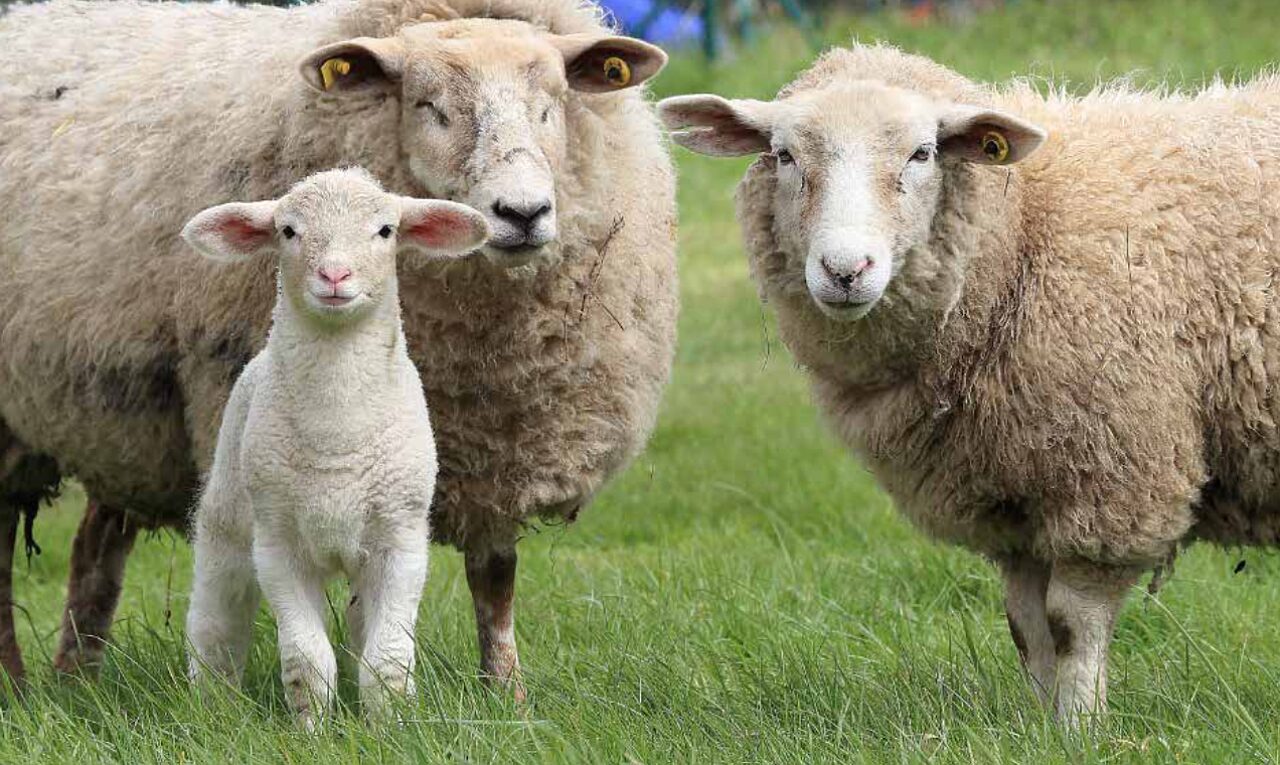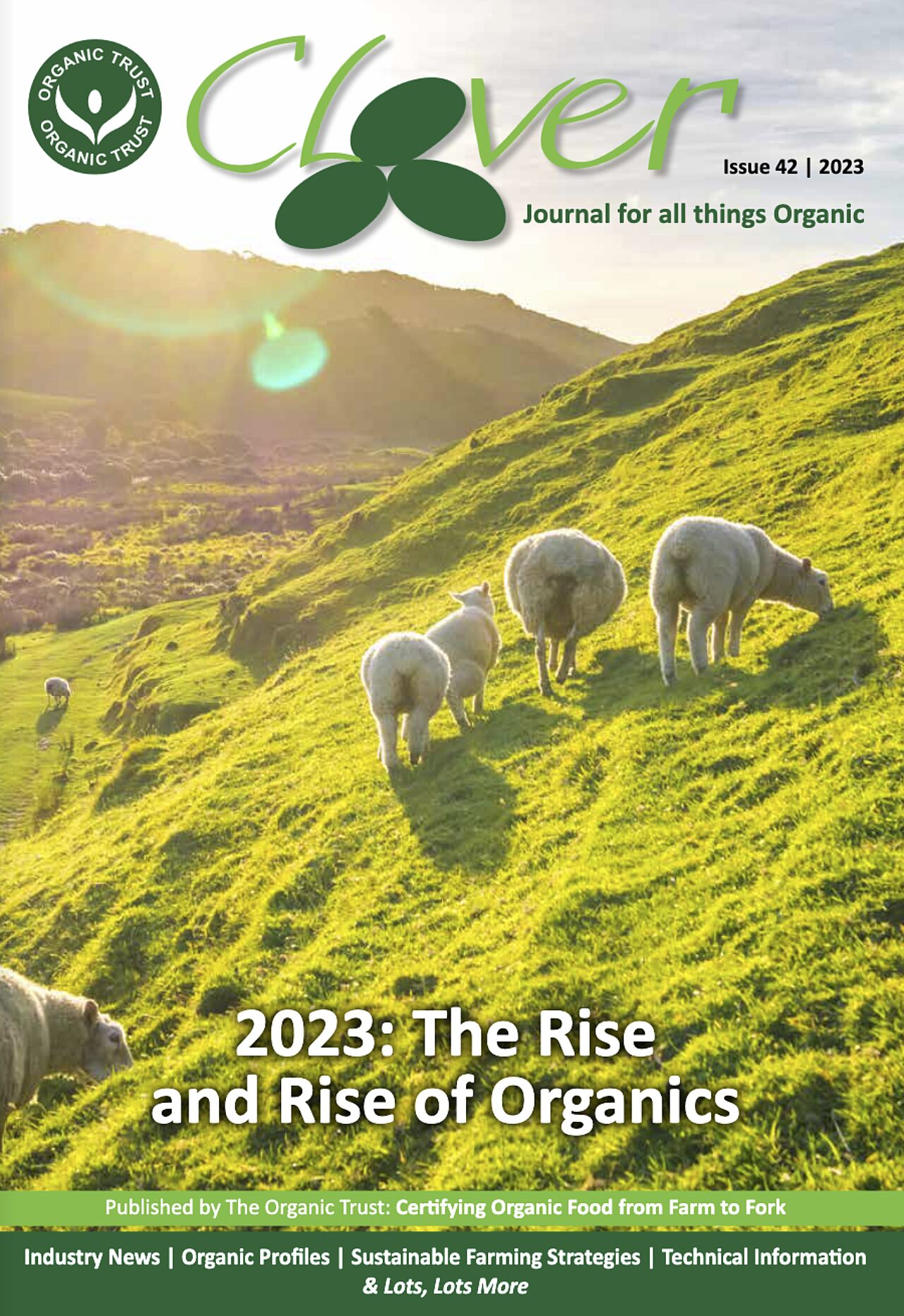
Vets Corner
by John Robinson
Experienced veterinary surgeon John Robinson shares some advice on the most common health concerns organic livestock farmers face
1- Foot scald in sheep
This is the most common cause of lameness in sheep; it is a bacterial infection of the skin between the cleets, and occurs in warm wet weather at grass, or in housed situations, where sheep are standing on wet straw. The skin becomes red and swollen, with a distinctive smell. In mild cases, antibiotic spray will cure it; in more advanced cases antibiotic injections are needed.
Poached ground will harbour the bacteria which causes foot scald, so control strategies involve avoiding poached areas. eg. Changing the pasture, or even blocking pathways followed by the sheep. Zinc sulphate foot baths are also effective. Probably the best prevention is a vaccine called Footvax.
2- Maggots in sheep
Maggots in sheep can range from a skin irritation to extensive areas of devitalised skin, and in severe cases: death. Treatment is the physical removal of the maggots (clip off the wool and wash with salt and water.) In severe cases where a sheep is off her food, antibiotic injections and painkillers are warranted.
Prevention is the important issue. Shear early; remove soiled wool, and control causes of scour. Daily inspection and observation by the trained eye will detect maggots at the skin irritation stage. Chemical preventions are dipping or pour-on chemical applications.
3- Mastitis in cows
This is the term for infection in the udder. In very mild cases, daily draining the affected quarter will cure it – don’t forget, the cow’s own immune system will be fighting hard against this. But if the cow is dull and depressed, off her food, or stiff in the walk, antibiotics and painkiller are required, either given by yourself or your vet. Neglected mastitis cases represent a welfare issue and will commonly kill the cow.
4- Scour in calves
What was traditionally know as a “milk scour” in young calves is a dietary scour. ie too much milk, and the calf remains in good form. But if the calf becomes dull and depressed the cause is likely to be infectious. At this point a diagnosis is vital as it will inform your next step in terms of prevention. Your vet will send a sample to the veterinary lab for you, or he/she may test it in-house.
As the calf becomes dehydrated, he will become weak and depressed, his eye will “sink”, and he may be unable to stand. He will need re-hydration therapies, often as much as four litres of electrolytes per day. Husbandry skills are hugely important – warmth, comfort and patience. If the calf is unable to stand and unable to suck from a teat, he may need an intravenous drip (given by your vet). A calf with scour is very prone to secondary infections such as pneumonia or a naval infection: these will require antibiotic injections.
The most common causes of scour are Cryptosporidia, and Rota-virus. Cryptosporidia is prevented by giving a course of Halofuginone lactate (eg Halocur), an oral dose every day for the first seven days of life. Rota-virus is prevented by vaccinating the cows three months to three weeks prior to calving; the cow’s immune system reacts to the vaccine and creates the specific antibodies needed. These antibodies are concentrated in the colostrum and if the calf gets enough colostrum and at the correct time, he is safe. If it is “too late” to vaccinate the cows, there are oral preparations containing the specific antibodies, to be given at the same time as the colostrum – your vet will have the details.
5- Liver fluke
I am not aware of any “organic” treatments for liver fluke. The usual advice is to restrict access to wet ground: an impossibility where I practice. However, I would say plenty of cows are in great condition all year around, and clearly if they have liver fluke they are coping admirably and don’t need to be treated; these are the cows to keep replacements from.
Sheep are different. Sheep can suffer from acute liver fluke which will kill them before any clinical signs are noticed. Therefore, all sheep on wet ground must be routinely treated for liver fluke.
6- Nutrition in organic animals
Except in the case of a cow heavily pregnant with twins, or a ewe heavily pregnant with triplets, good quality forage (and enough of it) will provide all the mother needs. The watchful eye of a keen stock person will notice if the cow / ewe is losing condition. If so, we must look at other factors – Parasite burden? Are they eating enough? Is there a bully in the pen? Is the forage good enough quality? Is there adequate space to feed plus lie down? Supplementation if required is straight forward, any concentrates are high in protein and will do the trick.
It is worth also noting, the biggest factor in a cow being slow to go back in calf, is if she gets too poor in body condition at the time of calving.
7- Mineral deficiencies
Mineral deficiencies are often wondered about and guessed at. Suspicions are raised by a high level of retained placentas in cows (over 10%), and poor conception rate. Not slow to come in heat, but rather they are coming in heat, but not holding in calf to either AI or the bull. Diagnosis is by blood sampling. Correction is by mineral injection, feed supplements, or oral bolus.

Issue 42 2023
What an amazing, fantastic, challenging, eventful year we've just had! So, where to start! This year we have seen a great deal of firsts in the Organic sector- firsts that have been called for by many of you for years, but that have finally come into view.